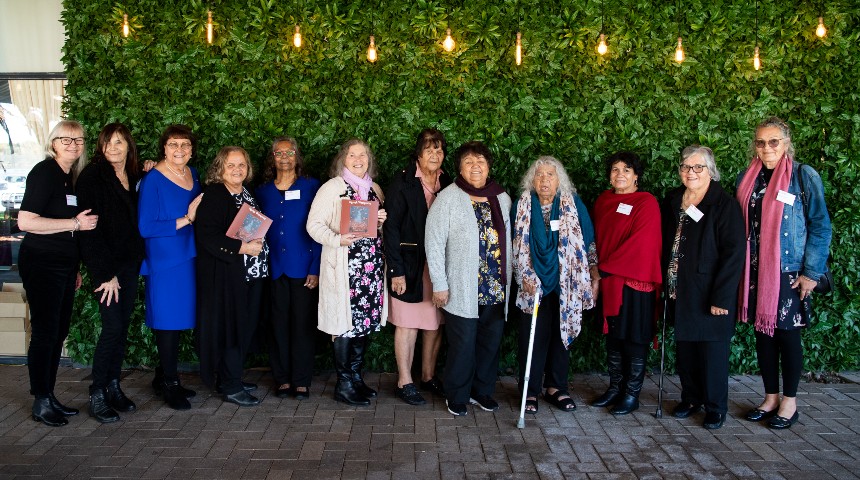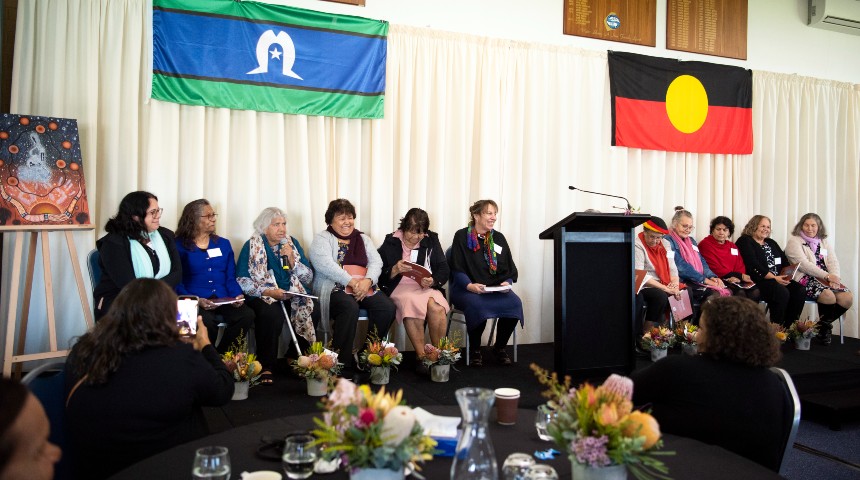
New book records 12 Elder and Senior Aboriginal women’s recollections of traditional midwifery skills and childbearing experiences.
The Ngangk Yira Research Centre for Aboriginal Health and Social Equity launched Ngangk Waangening: Mothers’ Stories this week. The unique book records 12 Elder and Senior Aboriginal women’s recollections of their grandmother’s traditional midwifery skills and their own experiences of childbearing.
Providing insights into their diverse circumstances and life journeys as well as documenting changes over time, the women’s stories highlight the importance of the cultural and educational role of Aboriginal women in the birthing process.
“The stories are powerful and real and provide a window of reflection into the life of each mother as she shares her moving, lived experience,” says Professor Rhonda Marriott AM, Director of Ngangk Yira Research Centre and one of the books editors.
“This is both a legacy for the women’s families and a critical resource for clinical practice. The knowledge shared by the women alongside clearly articulated learning opportunities aims to create better understanding of Aboriginal women’s cultural expectations during childbearing.”
Ngangk Waangening emerged from the groundbreaking Birthing on Noongar Boodjar research, a five year study led by Professor Marriott AM.
The research was the first of its kind to ask Aboriginal women living in urban environments about their experiences of birthing on Country.
 Image caption: Q&A Panel with the authors of the Ngangk Waangening: Mothers’ book at the launch event. Credit: Murdoch University
Image caption: Q&A Panel with the authors of the Ngangk Waangening: Mothers’ book at the launch event. Credit: Murdoch University
Funded by the Western Australian Government Department of Health and Murdoch University, Ngangk Waangening is a testament to the power of stories to convey important knowledge.
“It is our hope that midwives, midwifery educators and others working in the health system will read these stories and apply the learnings into their everyday practice,” said Professor Marriott AM.
Reconciliation between Aboriginal and non-Aboriginal people starts with deep listening and acknowledging the influence of the past on the present and future.”
“Pregnancy and childbirth presents a significant opportunity for the health system to rise to the challenge of truly closing the gap. Ngangk Waangening: mothers’ stories will contribute to this effort.”
This research supports the United Nations Sustainable Development Goal 3 to ensure healthy lives and promote well-being for all at all ages.
The book is available through Fremantle Press.
For research news delivered to your inbox, sign up to our monthly newsletter.